Callaway Big Bertha Alpha 815 Drivers: The AmateurGolf.com Review
11/22/2014 | by Pete Wlodkowski of AmateurGolf.com
see also: Equipment Reviews

Walk through the features and on-course performance of Callaway's newest models, the 815 Alpha and 815 Alpha "Double Black Diamond"
BIG BERTHA V SERIES DRIVER
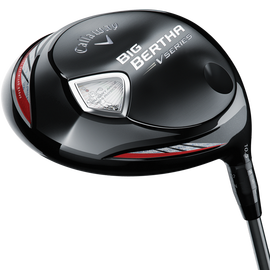 |
A slightly retro head shape in a gorgeous sparkling flecked-black finish defines the V Series on the outside. The modern Warbird soleplate might even tempt you to try it off the deck. When it came out in mid-2014 a number of Tour players immediately put it in their bags even though it’s perfectly suited for “the rest of us” looking for higher swing and ball speeds. Big Bertha V Series has the same hosel adaptor of the new Big Bertha Alpha 815 models, but it doesn’t have adjustable waits on the sole or a Gravity Core to fine tune spin. But if you’re looking for speed and simplicity, V Series might be a good fit. And there is still plenty of adjustability in the hosel connector to adjust your loft and lie and of course swap out shafts. (Read Review)
BIG BERTHA 815 SERIES OVERVIEW
Both models share a number of the same design features, albeit with totally different head shapes and dynamics. Callaway says that both models offer the elusive combination of low spin and forgiveness, and my launch monitor numbers bore that out. I know that some golfers are going to look at the second model, the “Double Black Diamond” (think of the difficulty rating of ski trails) and think “hey, I’m good, this must be the model for me,” but be wary of first impressions.
I got my best overall drive using the 815 Alpha DBD, but at spin rates in the 2000 rpm range which required me to work a little harder than I would like in order to the get the right trajectory and consistency. (I swing approx. 100mph as a point of reference and tend to launch the ball relatively low.) With the 815 Alpha, I found more consistency. At the risk of sounding like a broken record I want to remind you how important it is to get fitted, even though Callaway right now is offering a program that allows you to trade out any of the 2015 models for one of your liking in the event you’re not happy the first time (and our retail partner Worldwide Golf Shops offers a similar program).
SHARED FEATURES
Weight Ports: Both models have heal and toe weight sockets that allow for draw, neutral, or fade bias while also providing an easy way to accommodate shaft changes, where you want to keep a constant swing weight. Even in the neutral position, I find heal and toe weighting adds to Big Bertha Alpha 815’s stability.
Gravity Core:
Another shared feature, Gravity Core is a
feature
carried over from the previous model of the Big
Bertha Alpha. Smack dab in the middle of the
sole is
a removable “core” that is about an inch long
with
weight on one end. (The chamber is lined with
graphite for stability.) Change the core’s
orientation,
and you can raise or lower the spin you’re
getting
with any given loft. It sounds much more
complicated than it is – simply unscrew, change,
and
try and you’ll know which position works for
you.
Just don’t do it during an official round of golf.
R-Moto Technology:
This is a new feature for the 815 models – a set
of
rails on the bottom and crown of the club where
the
face is integrated with the body to provide
stability
for an ultra-thin face design. It’s part of the
secret to
getting forgiveness and low spin and I’m
convinced
that whatever they’ve done the feel of the ball
coming off the club is among the best Callaway
has
produced. My first impression on hitting the 815
was
that “the ball was staying on the face a long
time”
and while I liked the feeling I worried that the
spin
numbers might be too high, but that wasn’t the
case. Impressive.
WHAT MAKES 815 ALPHA and 815 ALPHA DBD DIFFERENT?
Head Shape:
Both models are jet black -- the most noticeable
difference between 815 Alpha and 815 Alpha
DBD is
the shape of the head. The Alpha is longer from
face
to back and has a fairly typical face shape and
height. The Alpha DBD is much taller and
slightly
pod-like in appearance; you can really feel the
height
of the face at address. Flip them over, and they
look
like “weapons of golf ball destruction” and I
mean
that in a good way. I love the technology and
since
the bottom of the club is the first thing you see
when you take off the red, boxing glove style
head
cover (it’s cool) you want something that
inspires
confidence and both models do that.
Stock Shafts:
The 815 Alpha comes with either a Fujikura
Speeder
Motore 565 or 665 or Mitsubishi Diamana S+ 60
shaft while the 815 Alpha DBD comes with
either a
Aldila Rogue 60 (The one I tested) or a Matrix
75M4
Black tie shaft. A number of other models
including
the Project X LDZ are available with no
upcharge.
Standard length is 45.5 inches.
The Numbers:
The degree of difference will be different for
every
player, but I think it’s safe to say that the DDB
will
provide the lowest spin numbers of the two
models.
Every driver has an optimal spot on the face
(usually
a little high and slightly towards the toe) that
provides that dream shot that launches high,
with
relatively low spin and just a hint of draw. If you
can
find that with DDB then don’t be scared of the
moniker “Double Black Diamond” regardless of
your
handicap. If not, try the Alpha 815 and don’t
forget
the Big Bertha V Series as an option.
SUMMARY
Say what you wish about driving for show or
putting
for dough. Getting (or keeping) extra yards and
hitting more fairways is really important and
puts
you in position to attack the course, rather than
have
to play defensively from the rough all day.
Callaway
has a full arsenal to take a hard look at and
they’re
providing you a fitting guarantee so you can buy
with
confidence.
Most Popular Articles
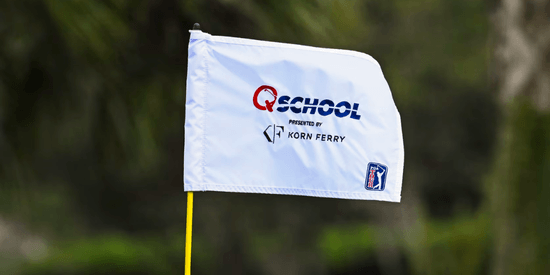
2025 PGA TOUR Q-School Guide: Sites, Scores, and Who Advanced
Dec 5, 2025Second Stage is complete and Final Stage awaits at Sawgrass — follow every Q-School leaderboard and the players still chasing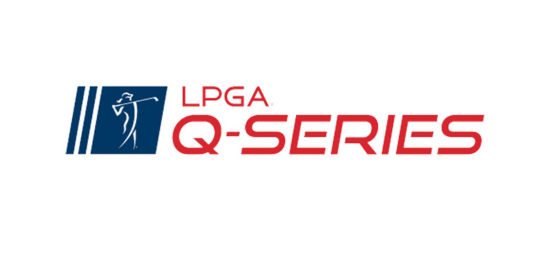
2025 LPGA TOUR Q-Series: Final Qualifying Stage FINAL SCORING
Dec 8, 2025Helen Briem earns medalist honors, 31 players headed to the LPGA next year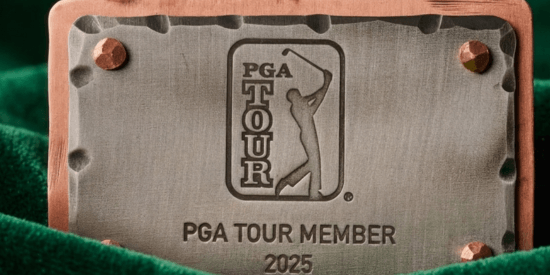
2025 PGA TOUR Q-School Final Stage: Ewart Leads Five New TOUR Card Winners
Dec 14, 2025A.J. Ewart topped Final Stage at TPC Sawgrass, leading five players who secured PGA TOUR membership for 2026.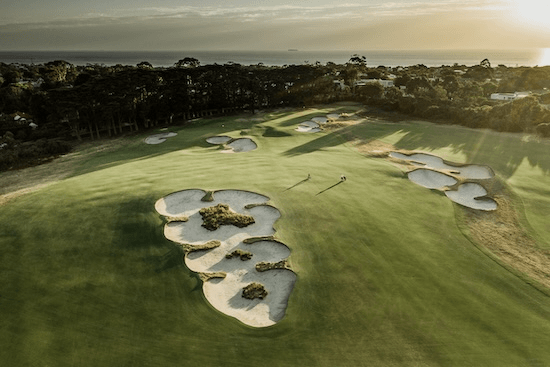
Australian Open at Royal Melbourne: Preview, amateur bios, and how to watch
Nov 30, 2025Rory McIlroy headlines one of the championship's top fields in years - at least four amateurs will have their chance at gloryInside Gil Hanse’s Restoration of Baltusrol’s Upper Course: A Return to Tillinghast’s
Dec 11, 2025Renowned architect Gil Hanse reveals how he brought Baltusrol’s Upper Course back to life by honoring A.W. Tillinghast’s originalLoading latest news...
